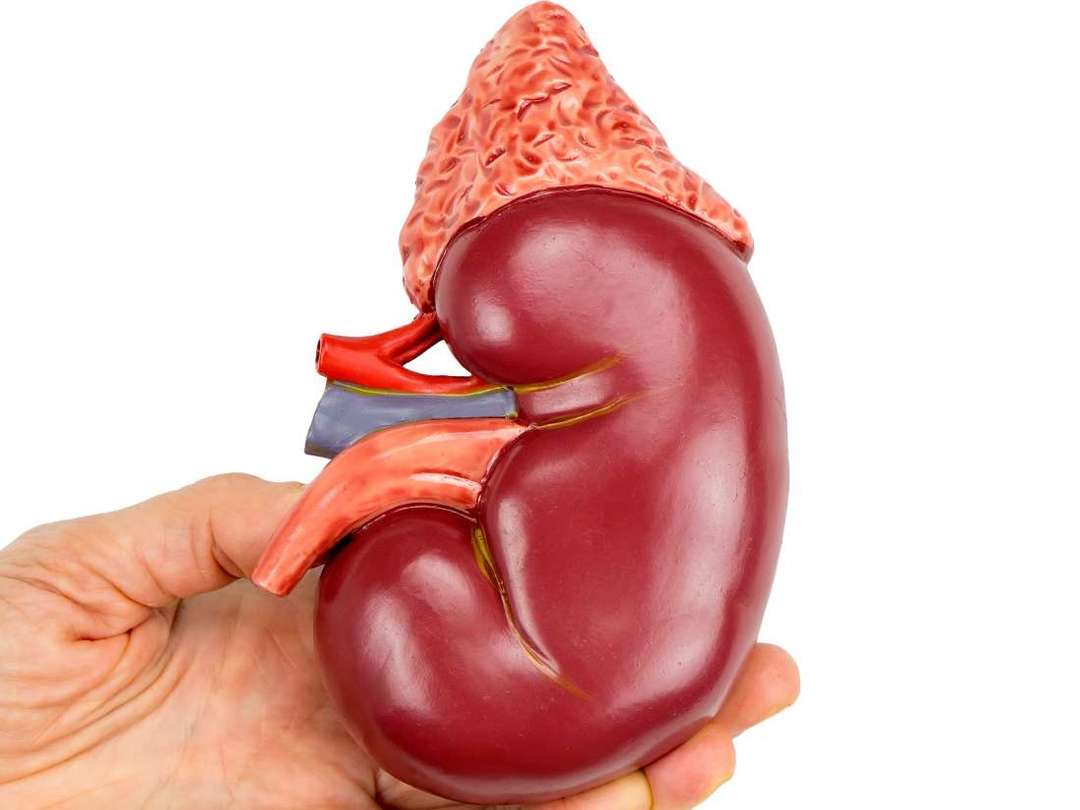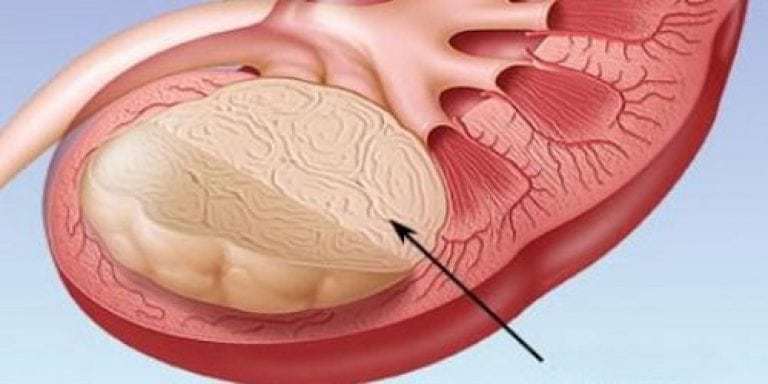Alport syndrome: what is it, causes, symptoms, treatment, complications
Content
- What is Alport Syndrome?
- Symptoms of Alport syndrome
- Causes of Alport syndrome
- Diagnostics
- Treatment of Alport syndrome
- Kidney disease
- High blood pressure
- Eye problems
- Loss of hearing
- Conclusion
What is Alport Syndrome?
Alport syndrome (hereditary nephritis) is an inherited disorder characterized by kidney disease, hearing loss and vision problems. Alport syndrome causes kidney disease by damaging the glomeruli, the tiny filters in the kidney that filter blood. In Alport syndrome, type IV collagen found in the glomeruli, inner ear and eyes is affected, making them unable to perform their functions properly. In turn, the kidneys become weak and less and less waste is filtered out of the blood. This sometimes leads to the terminal stage renal failure.
The condition affects the ears, leading to hearing loss in early adolescence or late childhood. People with Alport syndrome also sometimes have vision problems, such as an irregular lens shape, which can lead to cataract and / or myopia. Also, sometimes there are white spots scattered over the retina, called punctate and macular retinopathy. However, as a rule, these eye spots do not lead to blindness.
Complications of Alport syndrome are more common and more severe in men than in women. It is believed that this syndrome is diagnosed in 1 in 5,000 people.
Symptoms of Alport syndrome

The main symptoms of Alport syndrome are also its main complications, such as kidney disease, visual impairment and hearing loss / problems. These symptoms also tend to appear early in life, before the formal diagnosis of Alport syndrome.
Symptoms of Alport syndrome
- blood in urine (hematuria). This is the first sign of illness;
- protein in the urine (proteinuria);
- arterial hypertension (hypertension);
- swelling in the legs, ankles, and eye area;
- benign smooth muscle tumors (leiomyomatosis);
- accidental aneurysms.
Causes of Alport syndrome

Alport syndrome is caused by mutations in the COL4A3, COL4A4, and COL4A5 genes. These genes are responsible for the formation of a portion of type IV collagen. Collagen is the main protein in the body responsible for strengthening and supporting connective tissues.
This type IV collagen is really important for the function of the glomeruli, and mutations in these genes cause the collagen in the glomeruli to become abnormal. This, in turn, damages the kidneys and makes them unable to purify the blood properly.
This collagen is also found in the inner ears, and abnormalities in it can lead to sensorineural hearing loss. Type IV collagen is also important for maintaining the shape of the lens of the eye and the normal color of the retina, and it is its disturbances that cause the complications for the eyes associated with the syndrome.
Read also:Kidney cyst
Alport syndrome is inherited in three different ways:
X-shaped pattern.
This is the most common way Alport syndrome is inherited, and about 80 percent of people with the condition have this form. It is caused by mutations in the COL4A5 gene. Inheritance in an "X-shaped pattern" means that the gene is located on the X chromosome. Since males only have one X chromosome, one gene mutation on that chromosome is enough to cause kidney disease and other serious symptoms of the condition in them.
Women, on the other hand, have two X chromosomes and thus two copies of the gene, so mutating a gene on only one chromosome usually cannot cause serious complications of Alport syndrome. Because of this, women with X-linked Alport Syndrome usually only suffer from blood in their urine and are sometimes referred to simply as carriers. Often they can develop other serious complications associated with the disease, but even then, they tolerate them more easily than men.
With X-linked inheritance, fathers cannot pass this disease on to their sons, because biologically, men do not pass their X chromosomes on to their male children. On the other hand, every child has a 50 percent chance of inheriting a gene if the mother has a defective gene on one of her X chromosomes. Boys who inherit the defective gene usually develop Alport syndrome at some point in their lives.
Autosomal dominant inheritance.
This is a rare form of inheritance and occurs in only 5% of cases of the syndrome. People with this form have one mutation in the COL4A3 or COL4A4 genes, which means that only one parent has the abnormal gene and will pass it on to the child. In this form of Alport syndrome, men and women experience similar symptoms with similar levels of severity.
Atosomal recessive inheritance.
This form of inheritance occurs in about 15% of cases of Alport syndrome. A child inherits the disease in this way only when both parents are carriers and each has a copy of the abnormal COL4A3 or COL4A4 gene. However, men and women also suffer the same.
Diagnostics
First of all, a doctor may suspect that a person has Alport syndrome based on family history. Reported symptoms can also indicate the likelihood of illness. The doctor may use two types of diagnostic tests to confirm:
- Kidney or skin biopsy: This test takes a very small piece of kidney or skin and examines it in a laboratory under a microscope. A careful microscopic examination of a specimen can indicate whether a subject is ill.
- Genetic testing: This test is used to confirm the presence of a gene that can lead to Alport syndrome. It is also used to determine how a gene is inherited.
Read also:Glomerulonephritis: what is it, causes, symptoms and treatment
Early diagnosis of Alport syndrome is essential. This is because complications of the disease usually manifest in childhood / early adulthood, and without early treatment, kidney disease can be fatal already in early adulthood age.
Other types of examinations may be important to exclude other diseases from the list of differential diagnostics, assess the patient's condition or develop an initial suspicion of Alport disease, however, these are not diagnostic tests. They include:
- Analysis of urine: A urine test will be used to check the contents of the urine for blood or protein.
- EGFR test: This is a kidney function test, and it evaluates the rate at which the glomeruli are filtering waste. This indicator is a strong indicator of whether a patient has kidney disease. Blood tests, such as blood urea nitrogen and creatinine levels, help determine kidney health.
- Hearing examination: This test will be used to determine if hearing has been affected.
- Vision and eye tests: They are needed to see if vision has been affected or if there is a cataract. They will also be used to check for any characteristic signs of Alport syndrome, such as white spots in the eye and irregular lens shapes, which may indicate the syndrome.
Treatment of Alport syndrome

There is no single treatment for Alport syndrome because each of the symptoms and complications is treated individually.
Kidney disease
Controlling and slowing the progression of kidney disease is the first and foremost consideration in the management of Alport syndrome. For this, the doctor may prescribe:
- Angiotensin-converting enzyme (ACE) inhibitors or angiotensin receptor blockers to reduce blood pressure and possibly lower urinary protein and slow progression kidney disease.
- Limited salt intake.
- Diuretics, also known as diuretics.
- Low protein diet.
Read also:Stones in the kidneys
Your doctor will likely recommend seeing a dietitian to help you stick to the new restrictions to maintain a healthy diet.
However, kidney disease often progresses to end-stage renal disease, for who will either have to go on dialysis or, alternatively, undergo a transplant (transplant) kidneys.
- Dialysis Is an artificial process of removing and filtering waste from the body using an apparatus. The dialysis machine mainly replaces kidney function.
- Kidney transplant involves surgical replacement of a defective kidney with a healthy one from a donor.
It is not necessary to undergo dialysis before a kidney transplant is performed, and ultimately the doctor will help the person decide which is the best option.
High blood pressure
The specialist will prescribe the appropriate pills / medications to help control your blood pressure. Some of these drugs are ACE inhibitors, beta blockers, and calcium channel blockers. They help reduce the chances of developing cardiovascular disease and also slow the progression of kidney disease.
Eye problems
In case of vision problems caused by abnormalities in the shape of the lens, the doctor will refer the patient to an ophthalmologist. The ophthalmologist may then recommend a change of prescription glasses or surgery to remove a cataract. White spots in the eyes resulting from the disease do not affect vision in any way, therefore, as a rule, the ophthalmologist does not pay attention to this.
Loss of hearing
If hearing loss develops due to Alport syndrome, it is likely to be permanent. Fortunately, there is a large selection of hearing aids today that can help a lot with this.
In general, sufferers can also benefit from lifestyle changes such as eating well, staying active, and maintaining a healthy weight.
Conclusion
If Alport syndrome has been diagnosed, treatment options should be discussed in detail with your doctor, as each individual case is different in terms of severity and organs affected. It is imperative to seek the help of a specialized doctor who is experienced in treating this unusual condition.
You should also try to screen the family with genetic counseling to determine who else may be at risk. Alternatively, if you are not sick but are a carrier or have a family history, genetic counseling should be done before starting a family. This will allow you to learn how to reduce the likelihood of passing the genetic mutation to future children, if they are planned.



